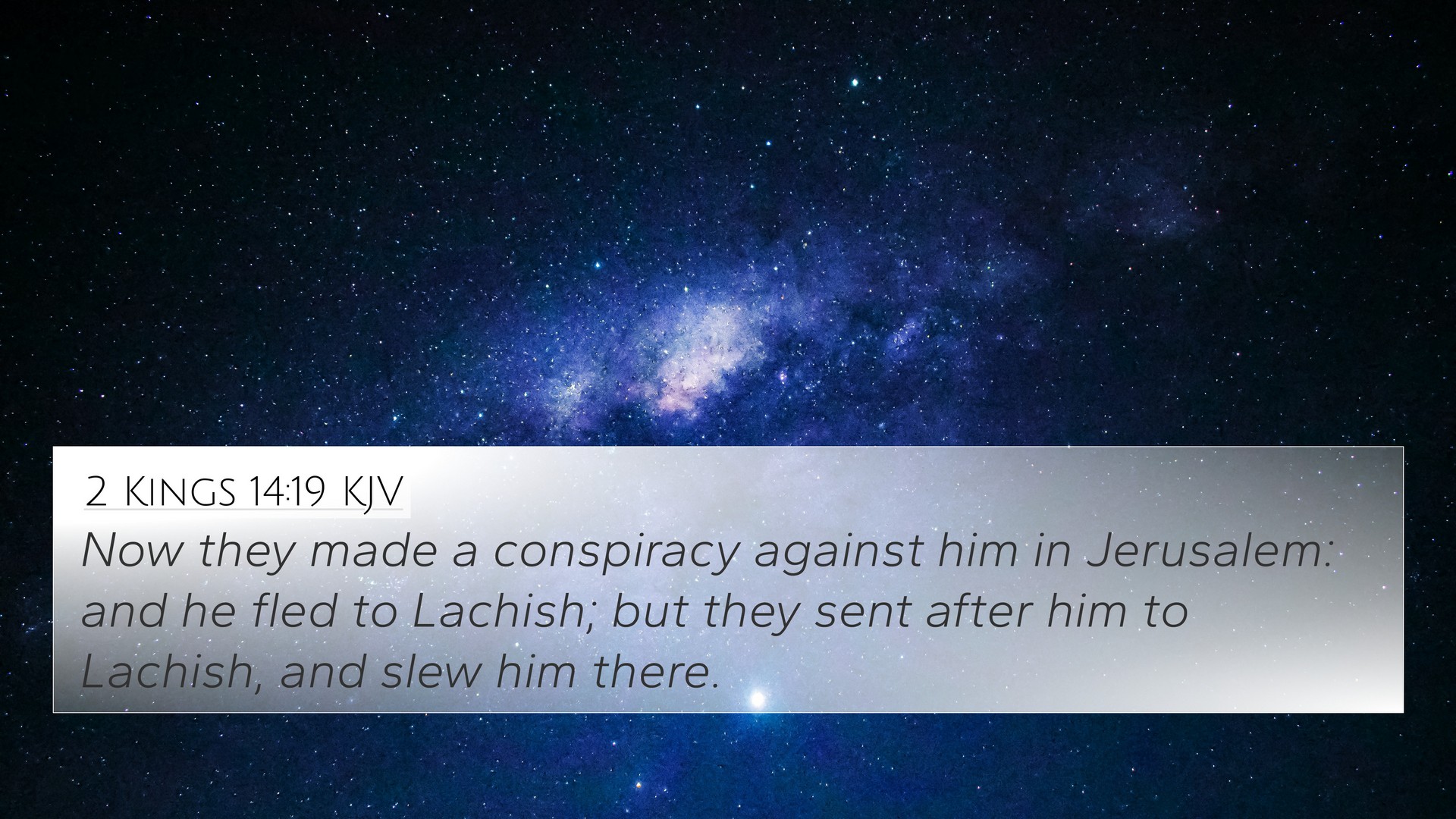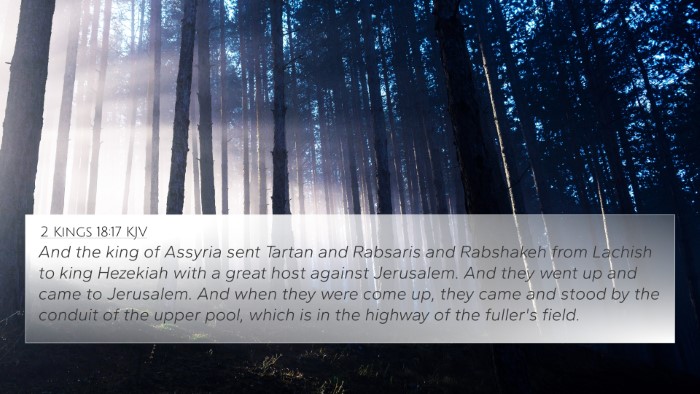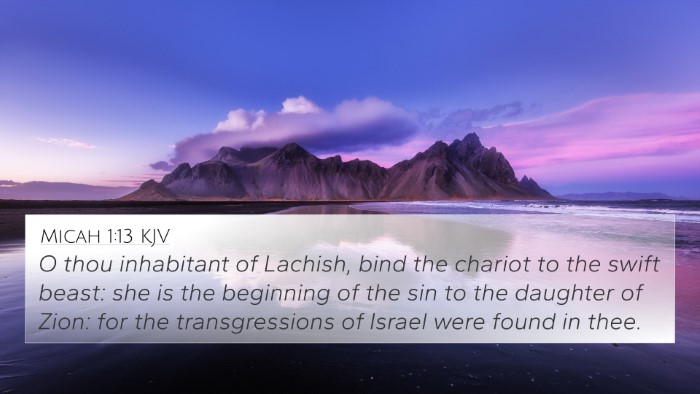Meaning of 2 Kings 14:19
Verse: 2 Kings 14:19 states, "And they made a conspiracy against him in Jerusalem; and he fled to Lachish: but they sent after him to Lachish, and slew him there."
Summarized Insights from Public Domain Commentaries
This verse discusses the conspiracy against King Amaziah of Judah. Scholars from various public domain commentaries, including those by Matthew Henry, Albert Barnes, and Adam Clarke, provide insights into the underlying themes of treachery, leadership, and divine justice.
Understanding the Conspiracy
-
Matthew Henry's Commentary: Henry emphasizes the unjust nature of the conspiracy against Amaziah. He reflects on how leaders are often met with betrayal, illustrating the volatility of power in ancient Israel. Henry suggests that this act of treachery indicates a broader moral decline and a rejection of God's anointed leaders.
-
Albert Barnes' Notes: Barnes notes that the conspiracy was severe enough to force Amaziah to flee. He indicates that Lachish was a fortified city, pinpointing that Amaziah sought refuge but ultimately succumbed to his fate, illustrating the inescapability of divine judgment and retribution against unfaithfulness.
-
Adam Clarke's Commentary: Clarke provides a historical context, explaining the political instability during Amaziah's reign. He posits that the conspirators were likely motivated by a desire for power and control, highlighting how political machinations often lead to bloodshed.
Thematic Connections
This verse invites readers to explore several significant themes:
- Divine Justice: The demise of Amaziah serves as a somber reminder of God's judgment against leaders who fail in their fidelity to Him.
- Betrayal and Leadership: The act of conspiracy illustrates how leaders can quickly become targets of their own people, a theme that recurs throughout biblical history.
- Human Fallibility: Reflecting on Amaziah's choices leads to discussions about the human propensity to stray from righteousness.
Connections to Other Bible Verses
2 Kings 14:19 resonates with various passages across the Bible, showcasing thematic parallels and inter-Biblical dialogue:
- 2 Samuel 15:10: This verse depicts another king, Absalom, conspiring against David, highlighting the treachery within royal families.
- Jeremiah 22:17: This passage speaks to the neglect of justice and righteousness that leads to destruction, echoing the fate of Amaziah.
- Ecclesiastes 8:2-3: Discusses the importance of obeying the king, lamenting the consequences of rebellion against rightful authority.
- Isaiah 1:23: Reflects on the failure of rulers to defend the powerless, a theme that links with the downfall of Amaziah.
- Luke 13:34: Jesus laments over Jerusalem, illustrating the theme of rejection of God’s messengers, akin to Amaziah's betrayal.
- Matthew 26:14-16: Explores the conspiracy against Jesus, drawing parallels between political and spiritual betrayal.
- Psalms 2:1-3: Discusses the plotting of nations against the Lord's anointed, resonating with the conspirators' mindset in 2 Kings.
- Matthew 10:36: Jesus notes that a man's foes will be those of his own household, further highlighting the theme of betrayal.
- Proverbs 29:12: Mentions how a ruler receiving falsehood affects a nation, which can be reflected in Amaziah's rule.
- Revelation 13:4: Symbolizes the ultimate rebellion against divine authority, resonating with historical patterns of leadership failures found in 2 Kings.
Conclusion
The conspiracy against Amaziah as depicted in 2 Kings 14:19 not only narrates a historical event but encapsulates rich themes that are deeply interwoven throughout the Scriptures. The tragic end of Amaziah emphasizes the importance of loyalty to God, the dangers of political betrayal, and the inevitable consequences that come with falling away from divine commandments. For those seeking a deeper understanding of biblical truths, exploring these connections through a comprehensive Bible cross-reference guide can enhance one’s study and provide clarity on the themes presented.
Further Study
For individuals interested in cross-referencing Bible verses, there are numerous tools available to aid in comparative analysis:
- Bible concordance
- Bible cross-reference guide: Essential for identifying thematic links between scriptures.
- How to use Bible cross-references: Learning effective methods for cross-referencing can deepen understanding.
- Detailed cross-reference between Gospels: Offers insights into Jesus' teachings across the accounts.
- Bible reference resources: Including topical guides that help in navigating themes.














